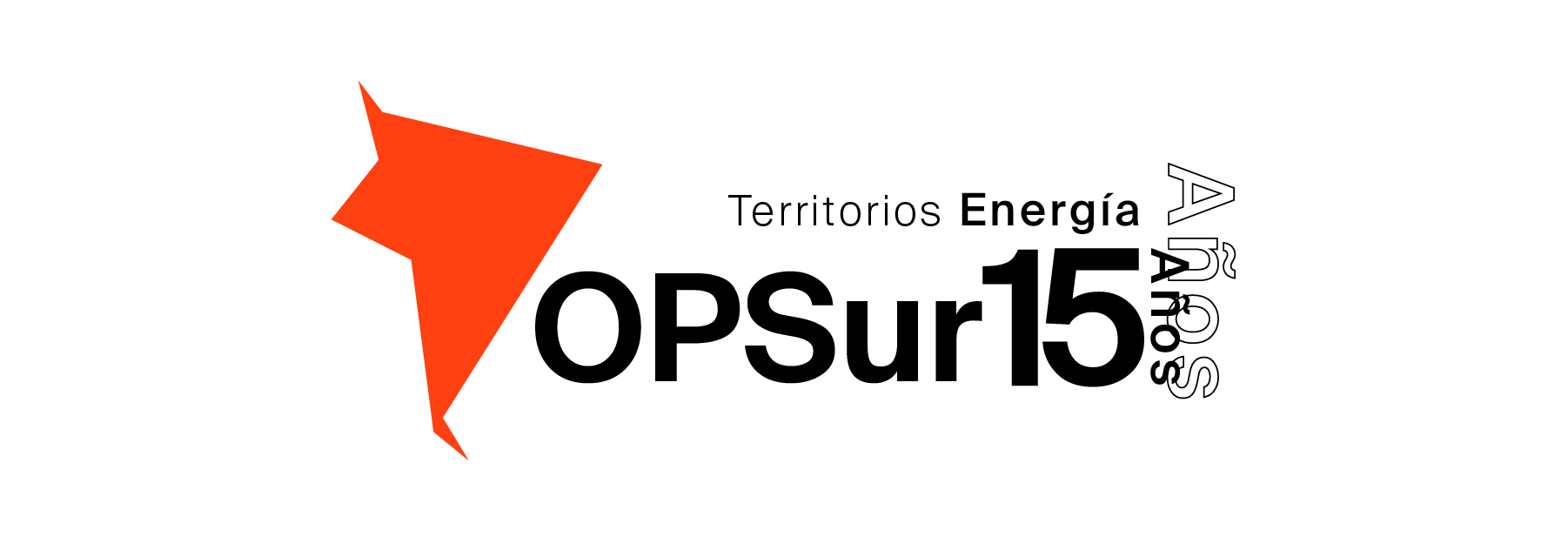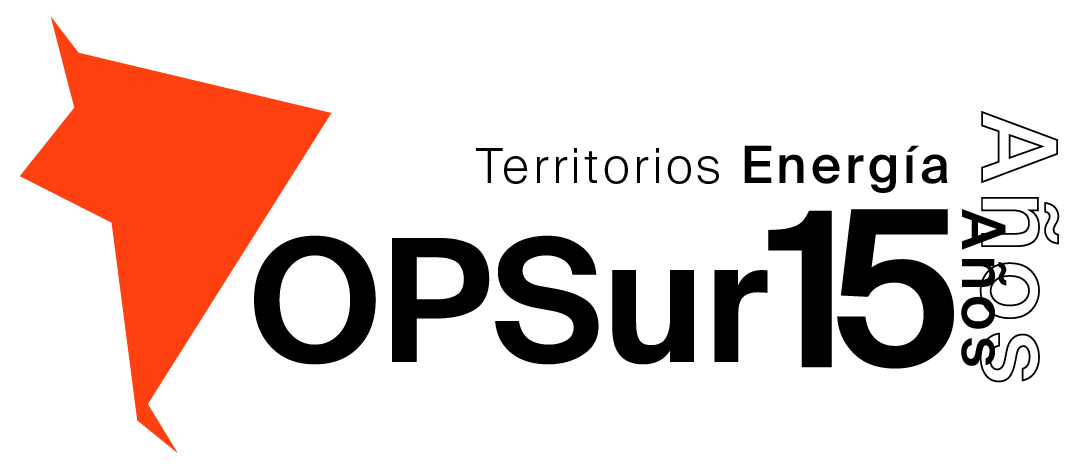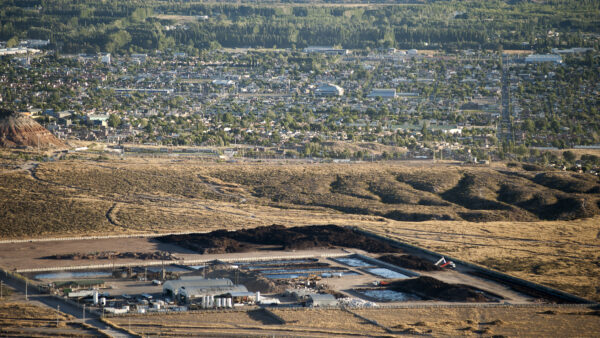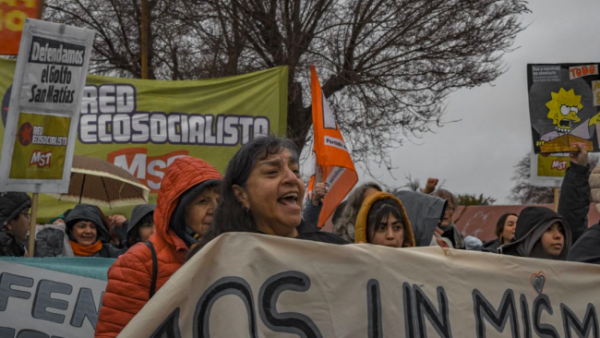The public consultation process convened by Shell and the Ministry of Environment and Sustainable Development to advance in the authorisation of the seismic exploration campaign in two blocks of the North Argentine Basin, 190 km off the coast of Buenos Aires province and identified as CAN 107 and CAN 109, is open until May 24th.
By Víctor Quilaqueo / OPSur.- The disclosure document released by the oil company omits any mention of the cumulative impacts of the successive exploratory campaigns that Shell, in association with other companies, plans to carry out. It does not include the interaction with activities in adjacent blocks, the interrelationship with port activities and mobilization of employees, and even fails to mention that it is a block that operates with another well-known oil company, Qatar Petroleum.
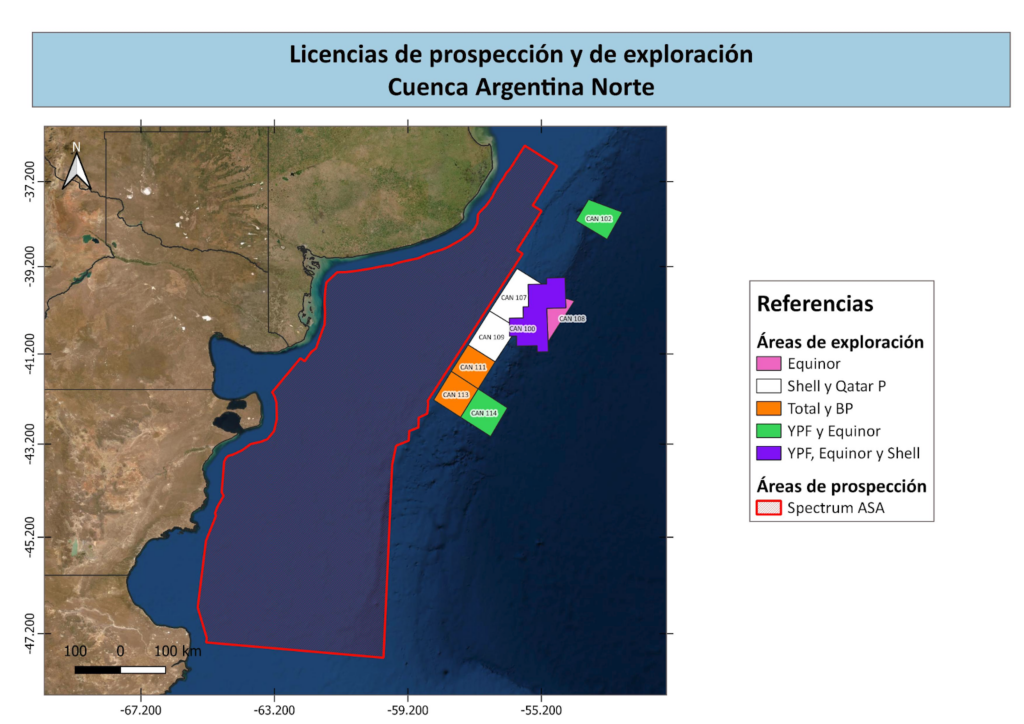
(Map: OPSUR, 2022)
In the document Shell also omits any mention of activities related to its association with YPF and Equinor for the exploration inthe CAN 100, 108 and 114 blocks, which at the time were subject oflegal proceedings. Although the companies obtained a favourable ruling, the underlying issue was not resolved: the environmental impact study does not account for the impacts of the activity, as it is an obsolete instrument whose framework of elaboration and results does not reflect national and international commitments or expectations in the context of a global energy and climate crisis. Shell’s disclosure document does not present the medium-term scenario of an initiative that has had local authorisation for more than a decade.
Shell was judged and condemned by the Dutch courts for its contribution to climate change and is obliged to drastically reduce carbon dioxide emissions by 2030. In addition to this sentence, there have also been rulings ratifying Shell’s leading role in the successive human rights violations and the destruction of the Niger Delta coastal and riverine territory in Nigeria. Furthermore, in South Africa, seismic exploration operations that the company plans to carry out between September 2023 and May 2024 were questioned. These challenges were based on scant evidence and weak arguments about the supposed benefits that the activity would bring to the communities of South Africa’s West Coast.
In summary, in the framework of a questioned process of consultation, expecting a public hearing, what we have is a document presented by the Dutch company that hides the fact that the project is part of a broader process of expansion of the fossil fuels frontier in the Argentinean sea. A process in which it plays a far from marginal role.

In Buenos Aires province, Shell’s name is also associated with an oil spill in Magdalena. Photo: Alejandro Meitin, OPSur 2022.
